#please be philosophical
Text
Thich Nhat Hanh on True Love and the Five Rivers of Self-Knowledge
“For one human being to love another: that is perhaps the most difficult of all our tasks… the work for which all other work is but preparation,” Rilke wrote to his young correspondent.
The great difficulty of loving arises from the great difficulty of bridging the abyss between one consciousness and another in order to understand each other, to map the inner landscape of another’s territory of trust and vulnerability, to teach each other what we need of love.
“Understanding and loving are inseparable,” the humanistic philosopher and psychologist Erich Fromm wrote in his wonderful field guide to the six rules of listening. Indeed, there is but one preparation for the task of loving: deep listening—the best tool we have for coaching each other in the agility and endurance necessary for sustaining a true and lasting love, the work of both passionate interest in the inner world of the other and profound self-knowledge.
That is what the great Zen teacher and peace activist Thich Nhat Hanh (October 11, 1926–January 22, 2022) explores in his slender, simply worded, penetrating classic True Love: A Practice for Awakening the Heart (public library).
He considers the first of the four Buddhist elements of true love—maitri, most closely translated as loving-kindness:
“Loving-kindness is not only the desire to make someone happy, to bring joy to a beloved person; it is the ability to bring joy and happiness to the person you love, because even if your intention is to love this person, your love might make him or her suffer.
Training is needed in order to love properly; and to be able to give happiness and joy, you must practice deep looking directed toward the person you love. Because if you do not understand this person, you cannot love properly. Understanding is the essence of love. If you cannot understand, you cannot love. That is the message of the Buddha.”
And yet while mutual understanding is the wellspring of love, the turbid confusion of understanding ourselves often stands in its way. “It is a fault to wish to be understood before we have made ourselves clear to ourselves,” Simone Weil admonished in her superb meditation on the paradoxes of friendship. “If you don’t understand yourself you don’t understand anybody else,” the young Nikki Giovanni told James Baldwin in their forgotten conversation about the language of love. Nothing does more damage in love than a paucity of self-knowledge. (“To love without knowing how to love wounds the person we love,” Thich Hhat Hanh would later caution.) Without self-knowledge, so much of what we mistake for desire, for devotion, for understanding is mere projection, a chimera of our patterned past keeping us from true presence with the reality of the other.
In Buddhist practice, nothing removes the screen of confusion and anneals the mind more effectively than meditation—the supreme instrument of self-understanding, out of which springs the unselfing necessary for true love. Thich Hhat Hanh writes:
“Meditation is the practice of looking deeply into the nature of your suffering and your joy. Through the energy of mindfulness, through concentration, looking deeply into the nature of our suffering makes it possible for us to see the deep causes of that suffering. If you can keep mindfulness and concentration alive, then looking deeply will reveal to you the true nature of your pain. And freedom will arise as a result of your sustaining a deep vision into the nature of your pain. Solidity, freedom, calm, and joy are the fruits of meditation.”
Twenty-five centuries before the Western canon of self-help cheapened and commodified the notion, the Buddha taught that “your love for the other, your ability to love another person, depends on your ability to love yourself”—which in turn depends on your degree of self-understanding. Thich Nhat Hanh points to the five skandhas, or aggregates, that constitute selfhood in Buddhist philosophy, depicted as five rivers: the body (“which we do not know well enough,” he rues); sensations (“Each sensation is a drop of water in the river,” he writes, and meditation is the practice of sitting on the banks of the river, observing the passing sensations); perceptions (“You must look deeply into their nature in order to understand.”); mental formations, of which Buddhism identifies fifty-two—feeling-states and faculties like happiness, hate, worry, distraction, appreciation, and faith; and consciousness, the last and deepest of the five rivers. (“Time is a river which sweeps me along, but I am the river,” Borges wrote in his timeless reckoning with time and the nature of consciousness, which inspired the title of one of Oliver Sacks’s finest essays, later the title of the posthumous collection of his writings: The River of Consciousness.)
Without full and conscious immersion in the riverine mystery inside us, there can be no true love—that great miracle of transformation that alters the superstructure of the self and tilts the very axis of reality, inclining it wonderward. Thich Nhat Hanh puts it simply, poignantly:
“It is necessary to come back to yourself in order to be able to achieve the transformation.”
Complement with David Whyte’s stunning poem “The Truelove” and philosopher Martha Nussbaum on how you know whether you truly love a person, then revisit Thich Nhat Hanh on the art of deep listening and the four Buddhist mantras for transforming fear into love.
Source: Maria Popova, themarginalian.org (3rd February 2024)
#quote#love#life#fidelity#meaning#existential musings#all eternal things#love in a time of...#intelligence quotients#depth perception#understanding beyond thought#essential thinking#perspective matters#please be philosophical#open your heart#like lovers do#this is who we are#stands on its own#elisa english#elisaenglish
0 notes
Photo
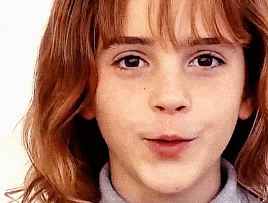

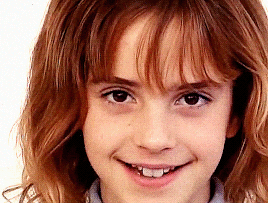
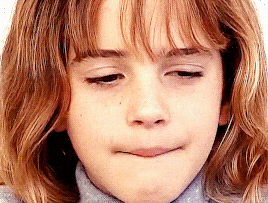
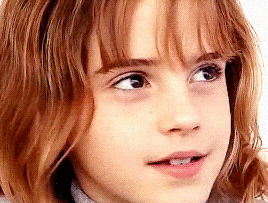
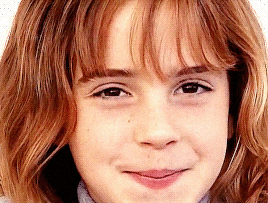
#six moods
Harry Potter and the Philosopher’s Stone Behind the Scenes (October 2000)
#emma watson#hpedit#hpcastedit#ewatsonedit#underbetelgeuse#cinemapix#filmgifs#filmedit#userstream#hermionegrangeredit#hermione granger#harry potter#philosopher's stone#my edit#*mygifs#hp cast#film#gifs#2000s#free to abuse as y'all please
777 notes
·
View notes
Text
Thinking really hard about Nahida hiding/repressing alot of her more childish mannerisms because the Sages openly resented her for having them and being an inadequate god as a result in her early life, but these traits are things Wanderer actively likes about her because he gets along well with kids :(
Like say She gets a little embarrassed when he notices her splashing in puddles when it rains, or tinkering with human toys because as it’s mentioned in her character stories the Sages refused to give her some (if any at all), but he always just goes along with it and doesn’t mind her being silly (him giving him the Hat Guy nickname would fall under this). Wanderer strikes me as someone who finds childlike joy & innocence kind of comforting/cathartic to be around especially as something he can trust so I like to imagine this is an extra thing that makes him just genuinely enjoy Nahida’s presence. And it’s great for Nahida because I think she really benefits from having someone on more equal footing as her who doesn’t hate her for being a child
#wnderer#scaramouche#nahida#lodish#hat radish#fandomferns#nahida goes from insightful philosophical discussion with wanderer to goinf#wanderer lets go frolick outside and wanderer is like ok 👍🏻#I love them. please read the nahida’s toybox character story
189 notes
·
View notes
Text
Rivals. ✨️✨️🪄
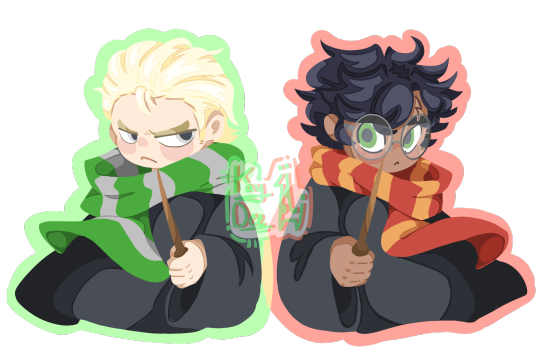
#draco malfoy and harry potter#harry potter#harry potter and the philosopher's stone#harry potter year 1#draco malfoy#draco malfoy art#harry potter art#harry potter fanart#draco malfoy fanart#drarry#harry x draco#draco x harry#draco malfoy/harry potter#harry potter/draco malfoy#my art#please don't repost#i just realized that I probs flipped this at some point and forgot because Harry's scar is in the wrong side but wtvr
163 notes
·
View notes
Text
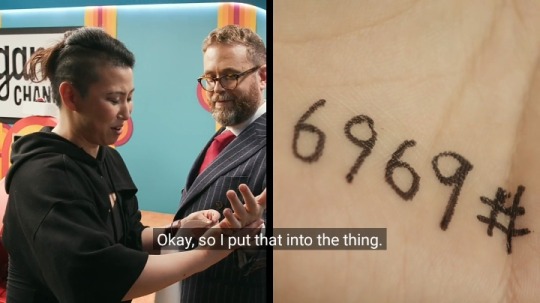
Im so glad that yesterday's game changer episode confirmed that sam reich is actually a 12 year old boy
#i'm philosophical#game changer#sam reich#erika ishii#game changer spoilers#it also ends in a pound symbol#in case you thought he was being too subtle#this episode was an absolute delight i fucking love scavenger hunt and hidden object games so goddamn much#also someone please tell rekha where the fuck you all are going she needs help
81 notes
·
View notes
Text
I know I made a post about it but I really just need to lay on the ground and think about the description of dunamis as "the very nature of the cosmos" I have been saying this for OVER THREE YEARS
#I cannot fucking believe#like it does feel like the logical conclusion but like#oh my GOD what the fuck does that mean in the cosmology here. what does it mean for predathos. HELLO#CAN WE TALK ABOUT THIS PLEASE I AM BEGGING#GIVE ME A FULL SESSION OF THE NEIN JUST HAVING AN EXTENSIVE PHILOSOPHICAL DEBATE ABOUT THIS#YOU KNOW THEY'VE DISCUSSED#jester yasha and kingsley are NOT paying attention except to make stupid jokes. they do not care#cr spoilers#luxon blogging
86 notes
·
View notes
Text
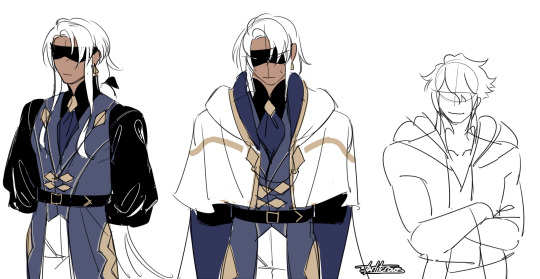


still working on his redesign
#kiran#kiran ijana#fire emblem oc#feh oc#summoner oc#fire emblem heroes#feh#oc#neosketches#light of my life my one and only my magnum opus my philosopher's stone and son and-#i am shot repeatedly by a sniper#please ignore the bottom left drawing#<3
147 notes
·
View notes
Text
Poets and political philosophers alike (such as Richard Siken and Karl Marx) have posited that romantic love must be mutual to be love, and that unrequited love or love that is not returned, is not love but something else. Siken claims it is desire, and Marx calls it an impotent misfortune. Others have weighed in as well with varied and conflicting perspectives, from bell hooks to Erich Fromm. But what does tumblr think?
#I'm curious as to people's thoughts on this.#if you want to give me a bigger sample size pls reblog#regardless of your answer pls explain your reasoning in the replies or tags#bonus points if you cite philosophers and theorists and poets!!!#please theorize about love in the replies and tags
90 notes
·
View notes
Text
could shifty leave alone if she wanted to?
at the end, i mean. she talks about leaving , she says she'll know what she wants to do when she's fully together, herself. at the end, all she says is that she missed you, and she wants you to understand her, fully, taking any resistance to her as. not understanding. or seeking the conflict and change she desperately seeks from you. and she says she has to save you before you can leave.
what i'm asking is, dear stp fans, could she have left alone at that point?
or more interestingly. could she have killed us?
#im seeking discussion#chat with me slay the princess philosophers i know youre there#slay the princess#the shifting mound#the long quiet#the shifting mound stp#the long quiet stp#the slayer stp#slay the princess speculation#plleeeeeease talk to me about this i wanna talk i'll even#pull up quotes and stuff please please please#i know you guys have thoughts on this#i have some too#im shifty's biggest fan#shifting mound#burntsoupwords
70 notes
·
View notes
Text
Need to start a book club for people who like Dostoevsky, Kierkegaard, Kafka, Rilke, Nietzsche. Also just to hang out on a discord server or something and be friends. I would like a close little group of friends, God knows it’s a lonely world, but I don’t think it has to be.
I’ve been reading The Idiot and I’m desperate to share my outpouring of feelings with someone. :^)
#classic literature#russian lit#dostoevsky#the idiot#crime and punishment#the brothers karamazov#rainer maria rilke#friedrich nietzsche#soren kierkegaard#existentialism#philosophy#book clubs#errrrr be my friend please#be my kindred spirit#no use being subtle about it#I think my kindred spirits must go on tumblr#I want the existentialists the melancholics the Christian mystics the free spirited artists#the armchair philosophers the fucked up pretentious intellectuals
94 notes
·
View notes
Text
bell hooks on Love
“For one human being to love another: that is perhaps the most difficult of all our tasks, the ultimate, the last test and proof, the work for which all other work is but preparation,” Rilke wrote to his young correspondent half a century before Baldwin admonished that “loving anybody and being loved by anybody is a tremendous danger, a tremendous responsibility.”
How we meet that dangerous task may be a function of our fearlessness, but we only ever rise—or fall—to love’s responsibility in proportion to our wholeness, that most difficult of achievements for us fragile beings living in a world that constantly divides us into fragments of ourselves.
Greatly influenced by the humanistic philosopher and psychologist Erich Fromm—who observed in his landmark work on the art of loving that “there is hardly any activity, any enterprise, which is started with such tremendous hopes and expectations, and yet, which fails so regularly, as love”—hooks argues that we fumble and falter at love largely because we are unclear on what it actually means and what it asks of us. Looking back on her own life, she writes:
“Had I been given a clear definition of love earlier in my life it would not have taken me so long to become a more loving person. Had I shared with others a common understanding of what it means to love it would have been easier to create love.
[…]
Definitions are vital starting points for the imagination. What we cannot imagine cannot come into being. A good definition marks our starting point and lets us know where we want to end up. As we move toward our desired destination we chart the journey, creating a map. We need a map to guide us on our journey to love—starting with the place where we know what we mean when we speak of love.”
Over the years, I have encountered some excellent definitions of love: For Iris Murdoch, it was “the extremely difficult realisation that something other than oneself is real”; for Tom Stoppard, “the mask slipped from the face”; for Adrienne Rich, “a process, delicate, violent, often terrifying to both persons involved, a process of refining the truths they can tell each other.” And yet, as hooks recognises, definitions are only the starting point—then comes the difficult task of putting our general theories of love into practice. Because our formative attachments shape how we love, this may often require unlearning damaging models and grieving the damage. Looking back on her own childhood, marked by a sudden and baffling expulsion from her parents’ adoration, hooks writes:
“We can never go back. I know that now. We can go forward. We can find the love our hearts long for, but not until we let go grief about the love we lost long ago… All the years of my life I thought I was searching for love I found, retrospectively, to be years where I was simply trying to recover what had been lost, to return to the first home, to get back the rapture of first love. I was not really ready to love or be loved in the present. I was still mourning—clinging to the broken heart of girlhood, to broken connections. When that mourning ceased I was able to love again.”
But it was not until well into middle age, when her partner of fifteen years left her, that she came to consciously examine the meaning of love, personal and cultural. She captures the harrowing umbra of heartbreak:
“My grief was a heavy, despairing sadness caused by parting from a companion of many years but, more important, it was a despair rooted in the fear that love did not exist, could not be found. And even if it were lurking somewhere, I might never know it in my lifetime. It had become hard for me to continue to believe in love’s promise when everywhere I turned the enchantment of power or the terror of fear overshadowed the will to love.”
And yet, she observes, the astonishing thing about being human is that, even at our most brokenhearted, we are animated by an inextinguishable faith in love. Lamenting the mixed messages of a culture that fetishizes love yet tells us that “lovelessness is more common than love,” she writes:
“Everywhere we learn that love is important, and yet we are bombarded by its failure… This bleak picture in no way alters the nature of our longing. We still hope that love will prevail. We still believe in love’s promise… Our hope lies in the reality that so many of us continue to believe in love’s power. We believe it is important to know love. We believe it is important to search for love’s truths… To open our hearts more fully to love’s power and grace we must dare to acknowledge how little we know of love in both theory and practice.
[…]
To know love we have to tell the truth to ourselves and to others… Commitment to truth telling lays the groundwork for the openness and honesty that is the heartbeat of love.”
Ultimately, hooks argues, the work of love is the work of the spirit—in our culture, and in ourselves:
“A culture that is dead to love can only be resurrected by spiritual awakening… All awakening to love is spiritual awakening.”
Her own spiritual awakening began when she was eighteen and still Gloria Jean Watkins. Studying to become a poet at Stanford, she met Gary Snyder, whose poetry was deeply influenced by his Zen practice. He invited her to a May Day celebration at his zendo. There, she met three American Buddhist nuns who left a great impression on her young mind. This was the beginning of her lifelong immersion in Buddhist contemplative practice, which in turn came to permeate her own work and worldview, including her understanding of love.
Years before she began writing All About Love, she reflects in an interview for the Buddhist magazine Tricycle:
“If I were really asked to define myself, I wouldn’t start with race; I wouldn’t start with blackness; I wouldn’t start with gender; I wouldn’t start with feminism. I would start with stripping down to what fundamentally informs my life, which is that I’m a seeker on the path… a path about love.
[…]
If love is really the active practice—Buddhist, Christian, or Islamic mysticism—it requires the notion of being a lover, of being in love with the universe… To commit to love is fundamentally to commit to a life beyond dualism. That’s why love is so sacred in a culture of domination, because it simply begins to erode your dualisms: dualisms of black and white, male and female, right and wrong.”
Couple with the great Zen teacher and peace activist Thich Nhat Hanh, whom hooks cites frequently throughout her work, on how to love, then revisit Roxane Gay on loving vs. being in love, poet Donald Hall on the secret to lasting love, and David Whyte’s stunning poem “The Truelove.”
Source: Maria Popova, the marginalian.org (3rd November 2023)
#quote#women writers#love#healing#connection#meaning#existential musings#all eternal things#love in a time of...#intelligence quotients#depth perception#understanding beyond thought#essential thinking#perspective matters#please be philosophical#open your heart#like lovers do#this is who we are#stands on its own#elisa english#elisaenglish
1 note
·
View note
Text
And with that, 2000 years of history and 10+ years of an animated adaption later, Attack on Titan is over.
I wasn't planning on making an essay post about this but like all of my essay posts, it got crazy out of hand, so here we are. I have a lot to say on it and the more I wrote, the more I realized exactly what the Attack on Titan finale was about. It's cathartic. It's also kind of a big shitpost but not for the reasons you might think.
Spoilers for the Attack on Titan finale ahead! CW: DISCUSSION OF WAR AND GENOCIDE AHEAD!
Now for anyone who knows what I'm about to talk about (and anyone who follows my stuff here), I'm sure you're wondering , what side do I fall on in regards to Attack on Titan's ending? Am I about to talk shit about it? It's very divisive and somewhat inconclusive. It followed the exact ending in the manga which, while expected, was still disappointing to many who had hoped the anime would take some other path.
But I have to ask, could there have been any other way?
Eren committed mass genocide, bordering on extinction of the entire human race. There was no way that he was gonna come out of it redeemed or as a hero, and he knew it. He went straight up Walter White core here and like Walter White, he is not a hero.

The fact that the Marlayans have been constantly going to war with other countries using Eldians as their personal soldiers goes to show that for countries that seek out conquest, there's no target too small or insignificant that can't be marked as an "enemy", and we see that reflected in Eren as well, in his pursuing of "freedom", an ever-moving goalpost that can never truly be satisfied.
The Jaegerists were hellbent on creating a new empire on the bloodshed of Marley - 'an eye for an eye', so to speak.
Nothing was ever going to truly satisfy either 'side' in the conflict of humanity vs. Eldians because such conflicts' origins have been obfuscated in hundreds of years of history, propaganda, and generational trauma that has repeated itself for so long that many don't even know what they're fighting for anymore, aside from one thing - that they don't want to suffer, that they shouldn't have to suffer for the actions of their ancestors, that they want peace and happiness but don't know where to start with taking the first step.
I think people are disappointed in this ending because, let's face it, it's anime, and it's an anime adaption that took years to finish. We always want to see some kind of vindication from stories like these, but I think in having vindication, it ultimately removes the point altogether of what's being said.
As much as we may try to fight it, try to deny it, the course of human history travels in a circle. Conflict will always arise. History is written by the victors, and those victors will be seen as heroes by whichever side they're fighting for regardless of what heinous acts they may have committed to justify their salvation. And after all of that conflict, regardless of the result - time goes on, and new conflicts arise.
But I don't think that means we have to succumb to grief and suffering and that's a point that I'm seeing missed in a lot of the discussion around the finale. There's a very powerful scene between Armin and Zeke, in which Armin talks about how he was born to run up the hill with Mikasa and Eren. He recognizes fully that if his life isn't meant to be long, he can still cherish those small moments that he thinks back on fondly, the moments that defined his life with the people he cared about.
And that's really all life is. Small moments and experiences that stick with us until the end. The very act of being born in and of itself is a cosmic miracle that gives us the chance to experience things that bring us joy and stay with us forever - however short or long that 'forever' may be. We take these small moments for granted when we're comfortable, but we look for them the most when we're suffering.
If I can relate all this to another piece of media that says the same thing - albeit with a much brighter ending - FF XIV: Endwalker also asks a similar question to Attack on Titan - is the only meaning in life to suffer and die? Of course, by its end, we learn that while death and suffering is an inevitable part of life - not something that should be avoided - it shouldn't persuade us to give in to fear and despair as a constant state of being. And I think Attack on Titan goes for a very similar approach, albeit slightly more as a cautionary tale - a nihilistic reminder that ultimately, the losses and victories we find in our current point of history are still just that, a single point, a blip that will be forgotten until it's ultimately repeated, and there's no escaping that.
It cautions us that freedom cannot exist without constant vigilance for war and conflict. It cautions us that our values and core beliefs for attaining freedom, love and happiness can be twisted into a weapon to cause harm, vindication gained at the cost of another. It cautions us that when left in the wrong hands, power can and will be abused by the ignorant while propagandizing itself as "the greater good".
So why not just find the joy that we can? The friendships, the little moments, the things that bring us happiness even if only temporary. Conflict is inevitable, suffering is inevitable, but that doesn't mean life isn't worth living. "Happiness" is not a tangible end point - it's the side effect of living a meaningful life that's true to yourself.
Attack on Titan is over. Some will argue the ending was the only way, others will argue that there could have been another way and that the anime adaption had the chance to change it but still didn't for reasons beyond their comprehension.
But isn't that the whole point? We'll argue. We'll bargain. Many of the arguments made will reinforce our own beliefs further rather than sway us. Many of us will insist there had to be another way, just as Armin insisted that this couldn't have been the only way, that humanity must have had another option. Meanwhile, many of us will acknowledge that at the end of the day, this is the story Isayama wanted to tell, and regardless of whether or not it makes him an idiot toying with his audience and admitting defeat by lampshading it in the penultimate scene of Eren admitting to his own idiocy, this was the power given to him and he used it in the best way he knew how.
Much like in any conflict, there's one thing that unites both sides - the human need for joy, connection, and freedom.
We might not agree on how Attack on Titan ended, but we can agree that it was a hell of a ride, and I hope we can all agree that it was worth riding, even if it wasn't satisfying for everyone in the end. It brought many people together regardless of their backgrounds, experiences, and differences, and connected them through something they all loved for over ten years. And despite how big a part of our lives it was, life will still go on, and we'll move on to other things to watch, enjoy, and argue over. Isayama will move on to whatever awaits him next, knowing fully well that his choice was his own, that he created the series he wanted to create regardless of how people feel about it. We'll all look for our own forms of joy and happiness as life moves on around us, as conflicts come and go.
Isn't that really what freedom is at the end of the day?
#also ok i know this turned into a philosophical post but like#i'm still just talking about fucking anime#so please for the love of god i don't want to be seeing anyone using this post as a way to play devil's advocate on real actual war crimes#human conflict in and of itself is an enigmatic inevitability but blatant actions of genocide and colonization are not#and that was made VERY clear by the end of the series through eldians and marlayans putting aside their differences to take out eren#also ymir being in love with king fritz was a bit of a weird thing to do but that's for another post#i think it spoke more to her just being that desperate for connection that she fell into an abusive relationship#but idk it could have been executed better esp because a lot of the 'romance' in AoT is weird#still i really enjoyed the finale tbh and i don't think we're supposed to be left feeling strictly one way about it#the fact that we're arguing over whether or not the finale was good is literally just proving isayama right ngl LOL#attack on titan#attack on titan finale#attack on titan spoilers#shingeki no kyojin#shingeki no kyojin finale#shingeki no kyojin spoilers#essay post#long post#tw genocide#tw war
95 notes
·
View notes
Text
Another thing is... there are ALWAYS going to be "power imbalances" in human relationships. That's just a fact. Even taking systemic injustice out of the equation, people come in different ages, different sizes, different strengths, different skill levels. And sometimes those power imbalances will shift over time or in different circumstances. You're never going to find another person who has the EXACT SAME skills, strengths, and privileges as you. So it seems futile and foolish to me to put the emphasis on not INTERACTING with people who might have a "power imbalance" with you. It seems to me that it would be better to try to be aware of "power imbalances" if you can, and then... be responsible. That old Spiderman "with great power comes great responsibility" canard is actually pretty good, I think. Sometimes having more power means you should give UP your power, or at least hold it in check, and sometimes this will mean using it in SERVICE to the other person, to HELP them. And if you find yourself on the lower end in any given interaction, well... sometimes that means (unfortunately) being cautious and having boundaries. But the other person ALWAYS has a RESPONSIBILITY. We're not all equal, for better or worse. But that doesn't mean we can't be kind. We can care for each other.
ETA: I am NOT trying to say that power imbalances shouldn't be leveled out if possible! I'm just trying to exist in the world in the meantime.
72 notes
·
View notes
Text
“Gay son or thot daughter” 🚫👎🙅🏽 no longer funny
Now it’s Bi son and thought daughter ✅

#LISTEN. Immanuel Kant was a German philosopher. I promise this is really funny.#that’s the father of the categorical imperative in that bl ok. please I beg of someone to find this as funny as I do#the heart killers#firstkhao#bisonkant#kantbison#which are we using folks
38 notes
·
View notes
Text
Since it seems, I need to point all this out... again...
Anonymous asked:
Like, I have no trouble seeing WWX as a good guy, or even the least bad in the cultivation world, but if he can subject a man to forced autocannibalism and orchestrate a scenario where a woman is made to put her mouth around his penis before biting it off, then he’s far from an ideal guy imo. There are things no one deserves no matter what they’ve done. Mxtx could have done more to distinguish his actions from the way XY subjects people to cannibalism and JGY forces women to rape his father.
I've answered a bit of this before, I will repost my response as well as respond further to my own view as to why I don't condemn him the same as Jin Guangyao and Xue Yang. As well as how it is a fandom fallacy he did the act to force Wang Lingjiao to do anything.
About the supervisory office:
First, let me at least mark the difference between “gui dao” and “mo dao” as it will be important for the courier station antics.
魔道 (Mo Dao): Lit. Devil’s way/path/truth
鬼道 (Gui Dao): The Ghost’s/twisted/sly, way/path/truth
心 (Xin) Soul/center/core/heart
心魔 (Xin Mo): Devil, Soul/center/core/heart
鬼 (Gui) lit. A ghost/demon/crafty/cursed
With these in mind, the way Mo Dao is crafted as a cultivator, is that you have to have a center/a core, that is innately tuned to be crafted as evil, hence, a corrupted core. To use real mo dao, it needs to come from within to manipulate, not from outer external references, it is the corruption of the self and the still living to craft evil beings.
To use real gui dao, it comes from the dead, the ghosts and the supernatural, in other words not of much of the self. It is using the outside forces of death and non-living beings to use techniques. It is simply using what already existed before to craft an entity.
Now, on to the Wang Lingjiao and Wen Chao scenes and why these distinctions are important and it was just Wei Wuxian manipulating the two’s already heightened paranoia’s to exasperate the negative energy they fostered between themselves.
1:
In that moment, as soon as she opened the chest, she was able to peer inside.
It was none of her beloved treasures, but the body of a pale, curled-up child!
2:
She snuck within the room once again, found a long clothing pole, and flipped the chest over. Inside of it, her treasure sat peacefully.
There was no child whatsoever.
Wang Lingjiao sighed in relief. With the pole in her hands, she squatted down. Just as she was about to brace herself, she suddenly realized that two bright spots were shining underneath her bed.
It was a pair of eyes.
That pale child from before lay prone under her bed, staring into her own.
3:
As he turned around, the rest of what he wanted to say stuck within his throat. He was staring at a woman in front of his door.
The woman’s features were broken, as though they had been smashed and then pieced together haphazardly. Her eyes stared in two different directions; the left upward and the right downward. Her entire face was horrendously disfigured.
Wen Chao, with some difficulty, was able to recognize her from her scanty robe. It was Wang Lingjiao!
4:
Still on the ground, Wang Lingjiao immediately picked up one of the stools legs, and frantically, she began stuffing it into her mouth, laughing all the while, “Fine, fine, I’ll eat it, I’ll eat it!
Haha, I’ll eat it!”
She had already stuffed a significant length of the stool leg down her throat!
Remember, that just before these confrontations Wang Lingjiao had already assumed that Wen Chao’s time was up as well as she herself making plans to run away. They had already turned on each other, as she was planning to move on to a more prospective target, and he wanting her out of the way as an annoyance.
As such, both have created a negative space for themselves, also, remember all of the talismans for protection that they had placed on the outside of the courier station, and their effects which had been reversed by Wei Wuxian. Their 风水(geomancy) physically and mentally has been disordered. Their harmony is broken. Thus, they have cultivated an outside force for Wei Wuxian to manipulate and turn the two against each other.
The above scenes are simply the inner hell they created from their own paranoia and negativity they trapped themselves in. Wei Wuxian only had to change a few character strokes on the protective talismans to sic them on each other while he was on the outside looking in.
5:
Wen Chao cried sharply in pain. It sounded piercing within the silence of the courier station.
Jiang Cheng asked, “Why is his voice so pitched?”
Wei Wuxian responded, “Of course it would sound like that with a certain something gone.“
Jiang Cheng replied in disgust, “You’re the one who took it? ”
Wei WuXian said, “It’s wretched if you think that. Of course I wasn’t the one who took it. It was bitten off by his woman when she went mad.”
There is no reason for Wei Wuxian to lie here, he has already proudly admitted to his tortures of Wen Chao before hand and his physical abuse against him and Wen Zhuliu. Wei Wuxian’s entire persona here was meant to be cruel and monstrous and he continued further torture of course, but it was added on to the existing abuse that Wen Chao and Wang Lingjiao cultivated together already.
So, no, anon, Wei Wuxian was not a rapist in any capacity here. He simply played dirty tricks to make these two ruin each other even more by themselves.
Now, to the second part of your ask. Personally, I am content with the way MXTX portrayed the act of his vengeance as being different than Jin Guangyao and Xue Yang. Because ultimately, when he did choose to do this, it was for all the violence these two (Wen Chao and Wang Lingjiao) reaped themselves, by the mandate of heaven and Chinese Buddhist belief, they have gathered their merits of "negativity" to face the consequences of their own actions. Cruelty is met with cruelty it has accrued. Nothing more, in Doaist terms, it is the way of nature righting it's harmony that humans are not made for. An eye for an eye.
The way of the world is for a human to be able to balance the self in it, and not for the world to cater to humanity. In this sense, the only ones who are in turmoil are those that have misrepresented their own words and actions (i.e. Lan Wangji and Wei Wuxian).
And, as I said, Wei Wuxian took revenge on none other than those that had wronged him. To Daoist principal that is as it should be. As for Jin Guangyao and Xue Yang however, they did not leave it to just that, they steeped in obsession of hate. To be doaist, you cannot place obsession, of any sort, over the tranquility of your own choices and way. They continued to cause ruin without the give. This has already set them apart as lost to the moral code of a daoist.
Daoism is not about the call of morality humanity is, it is simply the act of natural actions. Good and bad, are human and a fight that is constant to make peace with.
And for further details, let's get what geomancy is out of the way since it is critical to the usage of this scene and how the Wens there were easily turned against each other with just TALISMANS.
For starters, in China the art of geomancy is also divination , I Ching, specifically and has been used to say that by following the earth's natural patterns harmony can be achieved for life and home.
To garner negativity is to welcome negativity by being unaligned with those patterns. Which brings in the warding talismans that have been used all over by the Wens during this time. To shift the ward meanings is very simple and expounds the paranoia and hate that have already festered within this particular place. It has no Feng Shui based on natural energy that these people have. Harmony that is vital for daoism and cultivation has already been ruined and altered enough for it to be easy to manipulate through simple divination and the manipulations of the outside force that already is in existence.
Wei Wuxian already had the tools for all there to hurt themselves. Gruesome yes, but also in line with what is deemed as the energy accumulation and disruptions humans made themselves for revenge.
#mdzs#mo dao zu shi#wei wuxian#is not morally grey#literally this does not work if we philosophically play into what daoism is#yin and yang are the two extremes of each other#to balance them doesn't mean morally grey because enlightenment means to let go of human morality and be above human thought#ascension means you are above human crisis#and why the primordial soul is so important it can be swayed to either extreme#please just look up basic philosophy for doaism as it is very much in extreme contrast to human hardship
194 notes
·
View notes
Text
what do you call an ethical slay
serving kant
#i came up with this in class#laugh at my joke please#jokes#haha#i’m so funny#and i’m a woman#crazy how that works#grace rambles in the tags#THIS IS ABOUT IMMANUAL KANT#BITCHASS PHILOSOPHER THAT MADE MY PHILOSOPHY 205 HELL#immanuel kant
122 notes
·
View notes